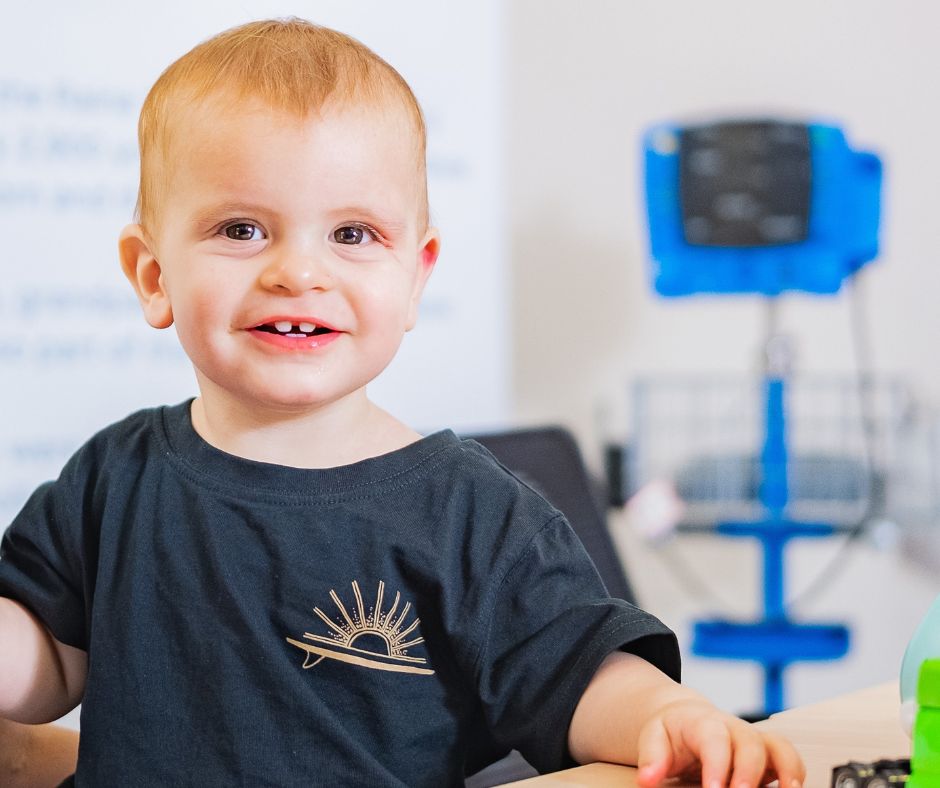WA-based Raine Study has tracked almost 3,000 young adults and their families since they were 18 weeks in-utero; 2024 funding from Channel 7 Telethon Trust will ensure the continuation of a world-first third generation of data collection.
19 April 2024: The Raine Study is thrilled to announce that it is one of the Telethon beneficiaries for 2024.
Grant funding has been awarded to the Raine Study’s Scientific Director, The University of Western Australia’s Associate Professor Rebecca Glauert. Thanks to Telethon’s generosity, the Raine Study can continue to recruit a world-first third generation of participants to the 35-year-old longitudinal cohort study.
This third generation (Generation 3) is the offspring born to the original Raine Study babies, who were born between 1989 and 1992. Recruitment of a third generation offers a unique opportunity to throw light on the nature and role of intergenerational transmission underlying some of society’s major chronic health issues. By having a greater understanding of these issues, clinicians can put in place measures to reduce or avoid risk of ill-health.
The gift of continuity
Thanks to generous funding received from Telethon in 2023, the Raine Study was able to plan and commence the recruitment of all current and future children born to the original Raine Study babies.
The 2024 grant funding will enable the Raine Study to build on the groundwork laid in 2023 for the ongoing follow-up and collection of data from Generation 3. Recruitment will continue, along with the following labour-intensive activities:
• Conducting of age-appropriate, face-to face physical assessments with Generation 3 children who range in age from infancy to adolescence.
• Analysis of the collected biological samples and survey data to enable them to be utilised by researchers as soon as possible.
There are currently around 800 third-generation Raine Study participants. This number is expected to reach into the thousands by the end of the next decade. Assurance of continued funding is not guaranteed in the world of longitudinal research. With the delivery of this 2024 grant, Telethon is helping meet a significant need which has the potential to change lives for generations to come.
Unparalleled opportunities for researchers, brighter futures for WA kids
Associate Professor Rebecca Glauert says that the impact of a second year of grant funding from Telethon is exponential.
“While it’s exciting to be able to recruit a new generation to the Raine Study cohort, the real impact is in the new ways we’ll be able to use data from our existing generations. We’ll be creating a platform for researchers to explore the early origins of conditions such as obesity, diabetes and high blood pressure which are all more prevalent in disadvantaged groups. If we can trace the cause of these diseases across multiple generations, we can develop interventions to reduce the likelihood of them developing in the first place.”
About the Raine Study
Based in Perth, Western Australia, the Raine Study is one of the largest and longest-running studies of human health from pregnancy through childhood, adolescence, and adulthood to be carried out anywhere in the world.
Since 1989, the Raine Study has been making life-changing discoveries as the world’s first pregnancy cohort study. 2,900 pregnant women from Perth’s King Edward Memorial Hospital were invited to take part in a study of ultrasound during pregnancy, with the goal of helping scientists investigate the origins of a child’s future health from before they were born.
Those parents (Generation 1) and their babies (Generation 2) are now taking part in their eighteenth follow-up studies, contributing to ground-breaking research on physical health, mental health, lifestyle, and genetics. The babies are now 34 years old and are having their own children (Generation 3).
It is the first 3-generation pregnancy cohort study in the world and is uniquely placed to improve understanding of the intergenerational determinants of health and wellbeing across multiple generations.
For further information visit: rainestudy.comms@uwa.edu.au or https://rainestudy.org.au
Or for media enquiries contact Heather Amos 0432 102 898

